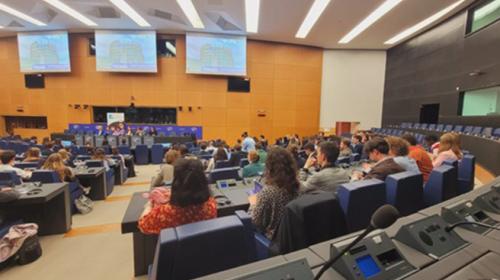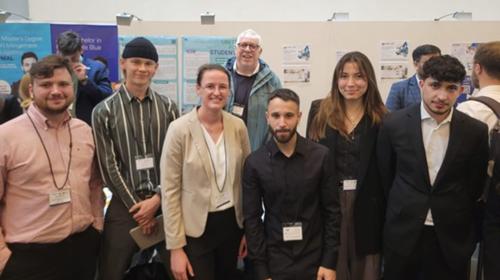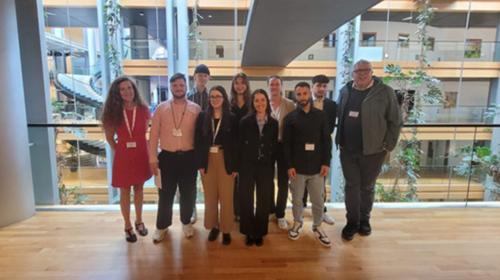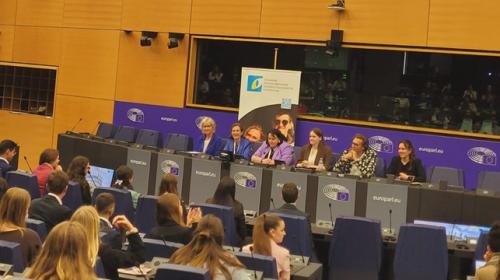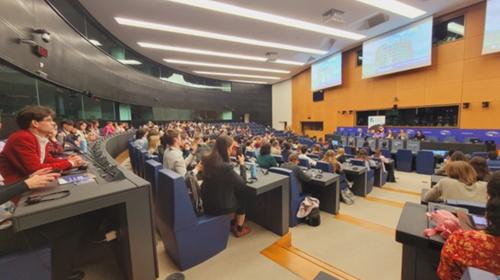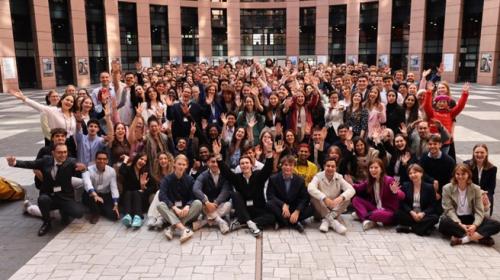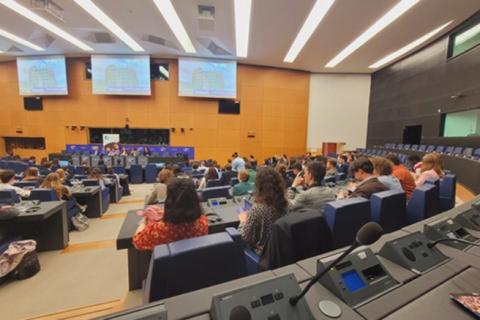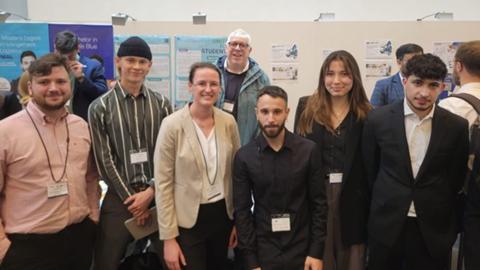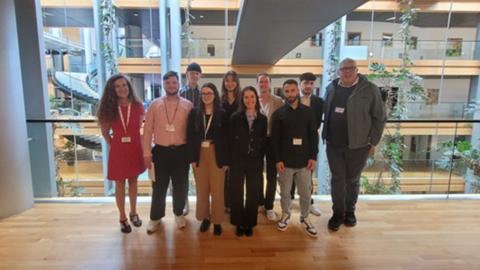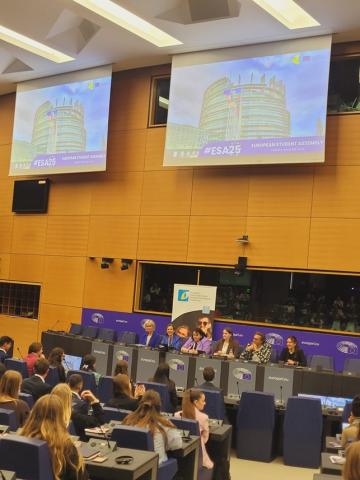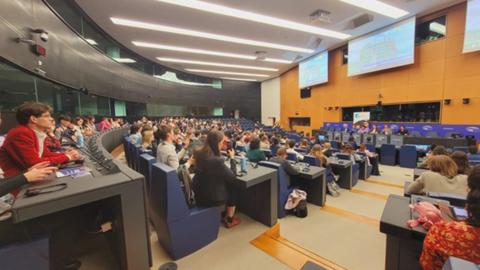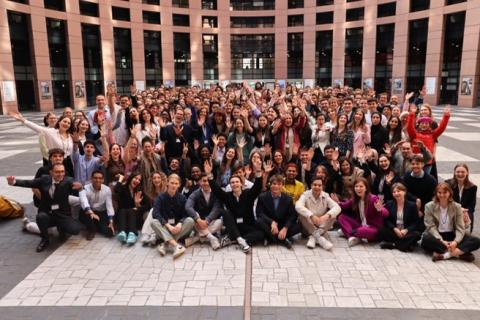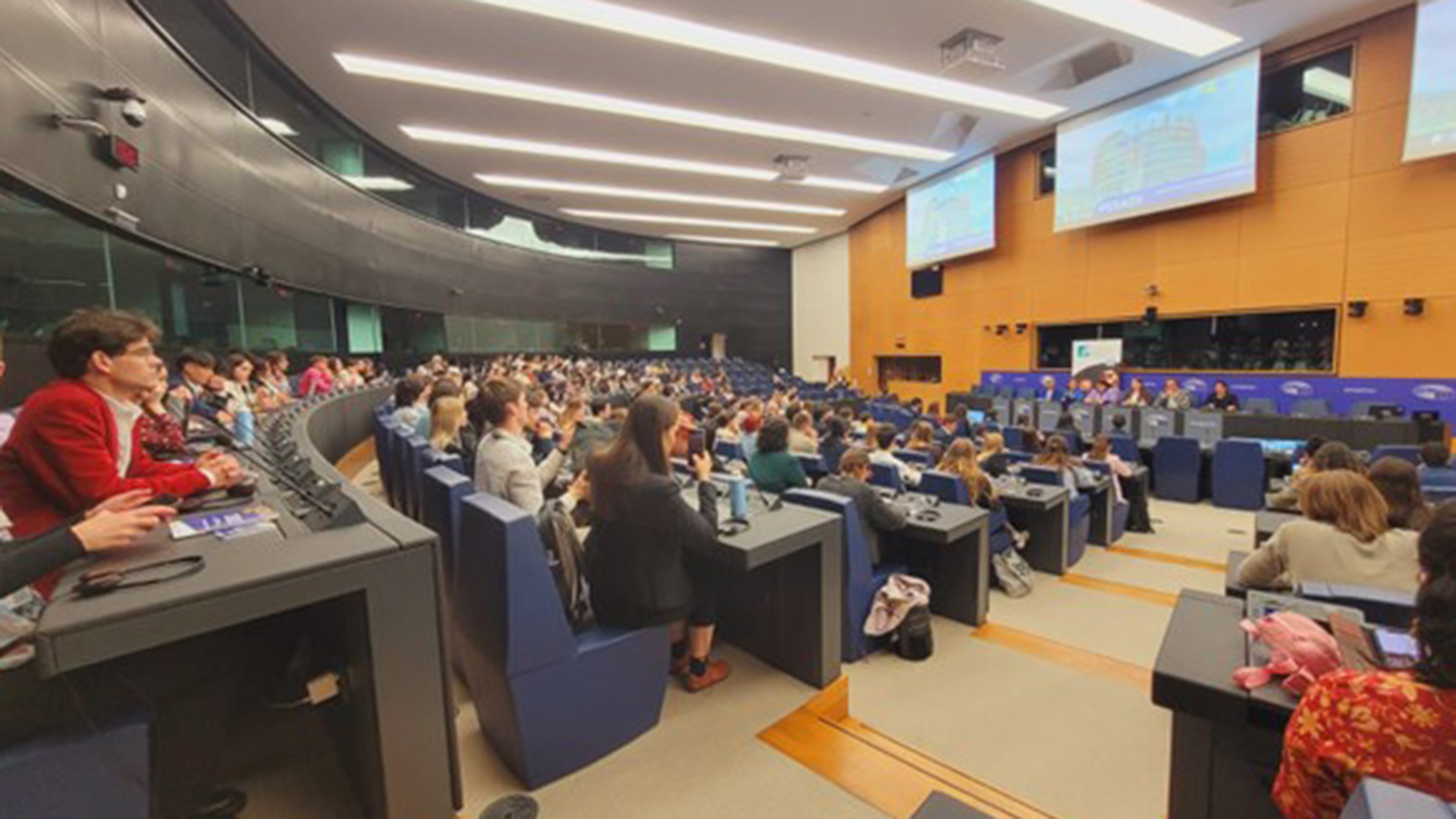
Politecnico represented at the Fourth European Parliament Student Assembly
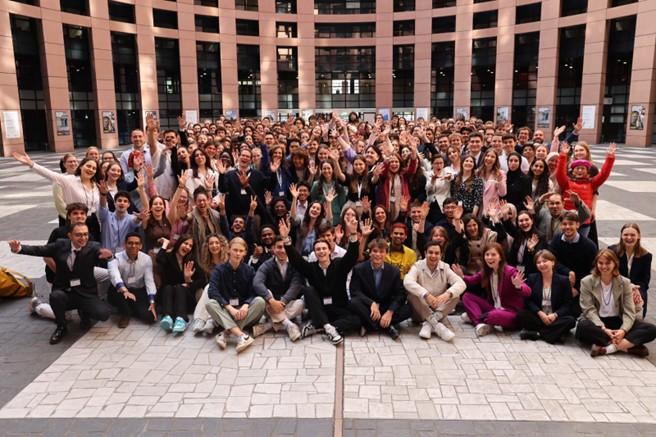
The fourth edition of the European Parliament Student Assembly (ESA) took place on May 26th - 28th in Strasbourg. Politecnico was represented by Professor Marco Sangermano, PoliTO Student Liaison Officer (SLO) for Unite!, who had the opportunity to participate in the assembly, along with SURE! students and colleagues from Grenoble INP – UGA. The Assembly's goal is to give a voice to young European students, thereby strengthening their essential role in shaping EU policies.
"This event was a profoundly inspiring and exciting experience, which shows the power of student voices in shaping the future of Europe". Emphasized Sangermano, who added “With clarity, passion, and purpose, the younger generation put forward innovative ideas and policy recommendations that are not only insightful but essential”.
The Assembly brought together 240 selected students from a total of 2,331 applications, representing 53 European University Alliances, 200 universities, 31 countries, 53 nationalities. Participants came from diverse academic backgrounds: 12% in Technology and Engineering, 14% in Business and Management, 14% in Social and Political Sciences. Unite! Alliance was represented by six selected students, in addition to two students from the SURE! initiative.
The students were asked to work in 8 different panels: Mentally Unstable, A Greener Tomorrow, AI, European Democracy and Civic Engagement, Innovation for All, Education Beyond Graduation, Living with Dignity, Unveiling Inequalities, Unity in Diversity.
Unite!'s participation in this event reflects the Alliance's ongoing commitment to promoting civic engagement, academic excellence, and inclusive innovation across Europe. A valuable experience was also offered by the Village of Alliances, where the work and initiatives of the Unite! alliance were presented to the student community. Furthermore, this experience reinforced the invitation to engage in exchanging perspectives with representatives from other European University Alliances. This setting fostered meaningful dialogue, the comparison of best practices, and potential future collaborations.
